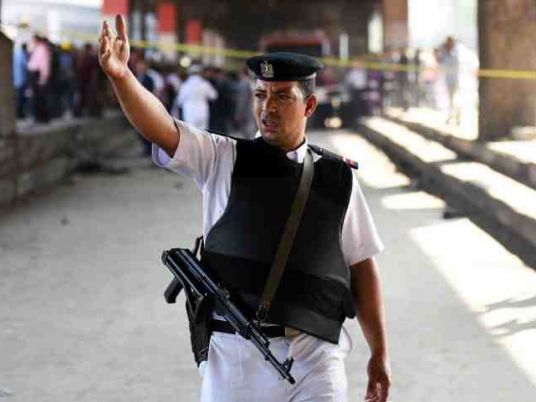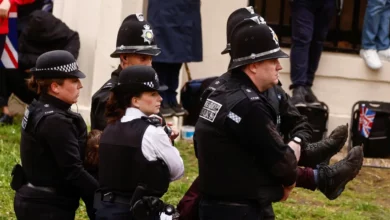A government crackdown on kiosks in Nasr City is leaving behind growing resentment and a succession of broken homes. Kiosk owners are quick to present their permits when the police arrive, but to no avail. Permits, it seems, are not the issue.
“They just showed up and told us to leave,” says Hajj Ahmed, 52, whose kiosk had occupied the same corner for over 20 years. "I showed them my permit. They said they didn’t care, I had to find someplace else. So I left. They let me keep the merchandise and my electric meter, God bless them, but they took the kiosk.”
The events Hajj Ahmed describes are familiar to a rising number of Nasr City kiosk owners.
“I came back,” Hajj Ahmed whispers, exhaling from a cigarette. “I came back a few days later, but don’t tell them that.”
Hajj Ahmed insists that he had done nothing wrong, that this was his corner and had been for the past two decades. It was his right to be here, just like it was his right to come back. He even has the papers to prove it. “Nobody pushes me around,” he mumbles and flicks his cigarette out into the street.
The past six months have seen the removal of at least 20 kiosks in Nasr City, with each kiosk supporting an average of three to four families. The result is a neighborhood of jittery, paranoid business owners hoisting yet another weight onto their already overburdened shoulders. After two weeks of attempts, local government officials would not respond to Al-Masry Al-Youm’s request for a comment on the matter.
Hajj Fathi, 63, sells fruit on a corner across the street from where a cigarette kiosk used to be, run by the elderly Hajj Mostafa. The two had been friends for close to ten years before the police showed up, accompanied by a local council official.
“They drove up one day, more vans and trucks than you’d think was necessary, and they stopped right over there in the middle of the road,” recalls Hajj Fathi. “Between me and Hajj Mostafa’s kiosk, and some kids selling vegetables on the corner. They got out and yelled and told us to leave. The kids gave them some trouble, I remember that.”
Eventually Hajj Fathi also came back. “The police were not after me. They wanted the kiosk and the vegetable kids gone. They just took it out on everyone else when they got angry at the kids.” However, he is upset about his friend, Hajj Mostafa, who was forced to take his family back to the countryside after losing his business.
“It’s wrong, and that’s all you can say about it,” says Hajj Fathi. “That kiosk was his only source of income. He had three families living off of it. He had the proper papers, he paid his bills. He was a good, hard-working man. The government took that away and he couldn’t survive in the city anymore. He had to go back to his village like a failure. He didn’t fail—he was bullied.”
Aam Hassan, whose kiosk used to stand three blocks away from Hajj Mostafa’s, remembers a similar, if slightly more surreal, morning.
“Well, for starters, they took my electric meter,” says Hassan, 42, unhappily. “I was just showing it to them and they took it. That thing cost me LE5000. Then they took the kiosk apart, threw the merchandise all over the street, and tore up the pavement that the kiosk had been standing on. They took the wires out from under the asphalt. Those weren’t even mine!”
Aam Hassan managed to get something resembling an answer from the police officers as they were taking his kiosk apart with their bare hands. “They said they were under orders from [Cairo] governor [Abdel Azim Wazir]. I asked them if the governor’s orders were based on anything like a bill, or was he just in a bad mood. They said they didn’t know.”
“The president recently said in a speech that he wouldn’t allow anyone to in any way harm the interests of any Egyptian citizen,” says Aam Magdy. “Where was the governor during this speech? I can’t afford to pay for my kids’ lessons anymore. The other kiosk owners and I have talked about getting together and doing something, but everyone’s afraid. We know this government, we know the system. And we know our place in it.”




